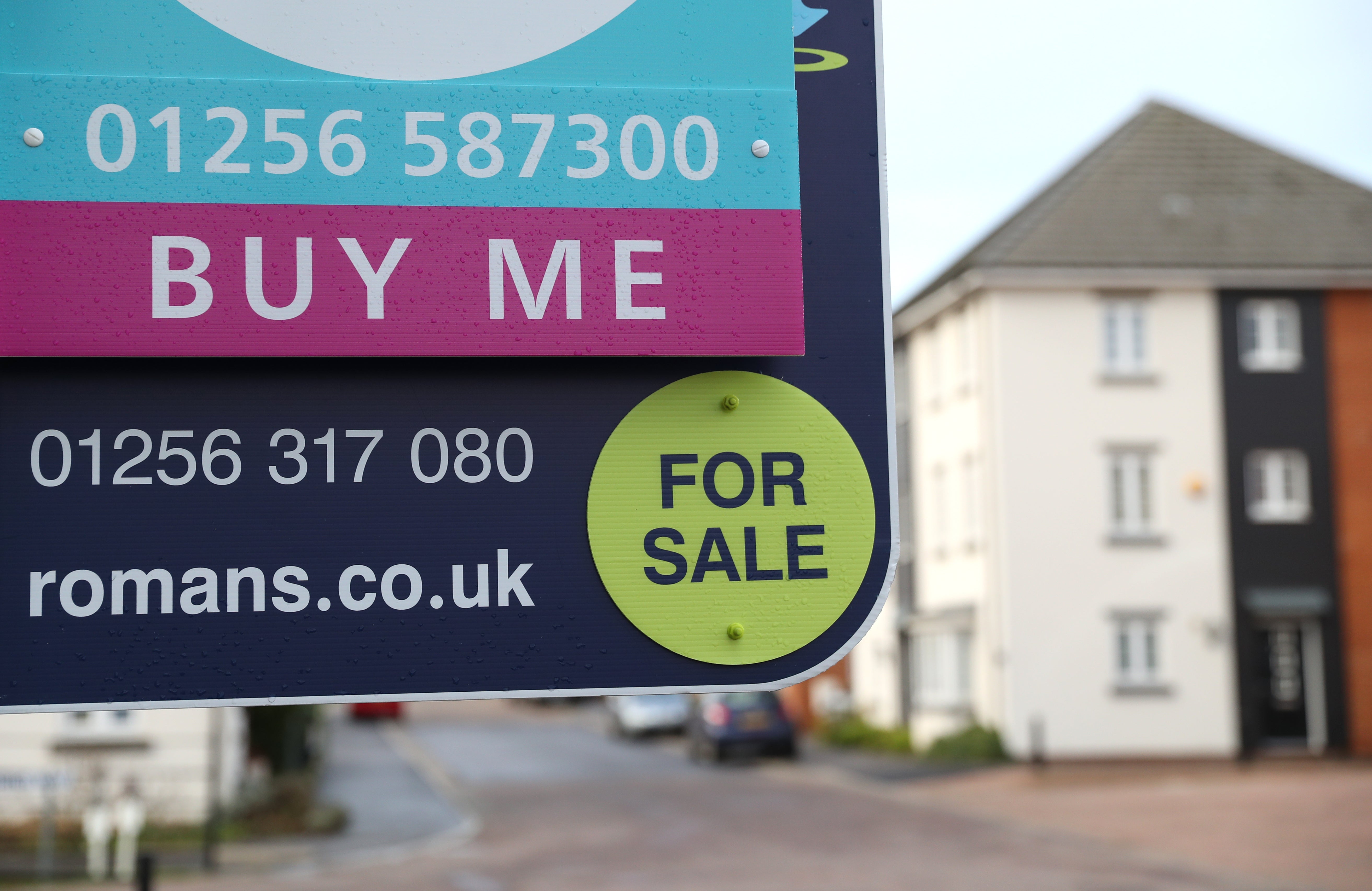Average UK house price surges by 10% annually and nears record high
Across the UK, the average house price in May was £255,000, close to the record seen in March of £256,000.

House prices increased by 10% in the year to May, pushing them close to a record high, according to official figures.
Across the UK, the average house price in May was £255,000, nearly returning to the record seen in March of £256,000, the Office for National Statistics (ONS) said.
In the North West of England, house prices surged by 15.2% in the year to May to reach just over £189,000 on average, up from 13.8% annual growth in April.
A stamp duty holiday, which has been extended and is currently being tapered into the autumn, was originally due to end in March.
It is likely that property tax breaks inflated March’s average house prices as buyers rushed to ensure their purchases completed ahead of this deadline, the ONS said.
ONS head of economic statistics Sam Beckett said: “House prices grew 10% in the year to May, continuing the trend seen in recent months.
“Once again, it’s property prices in London that are showing the lowest annual growth, with the North West of England showing the strongest.”
She added: “After dipping in April, UK average house prices saw a slight monthly increase in the month to May 2021 to £255,000, nearly returning to the record UK average house price seen in March.”
Average house prices increased over the year in England to £271,000 (recording 9.7% annual growth), in Wales to £184,000 (13.3%), in Scotland to £171,000 (12.1%) and in Northern Ireland to £149,000 (6.0%).
Get a free fractional share worth up to £100.
Capital at risk.
Terms and conditions apply.
ADVERTISEMENT
Get a free fractional share worth up to £100.
Capital at risk.
Terms and conditions apply.
ADVERTISEMENT
Average house prices in Scotland were at a record level in May, the report said.
For the sixth month in a row, London was the region with the lowest annual house price growth, at 5.2%.
But London remains the region with the highest average house price, at £498,000 in May.
Nitesh Patel, strategic economist at Yorkshire Building Society, said: “The appetite for larger homes continues unabated, with the price of detached homes growing by 11.3% compared to 6.5% for flats over the same period.
“Demand is strongest in areas of better affordability – namely the northern areas, where the average house price is significantly less than the UK average.”
He continued: “Even once the (stamp duty) tax break is removed in autumn, we do not anticipate activity and price growth to slow in response. Demand still exceeds supply.”
Stamp duty is not the only factor pushing prices up. The market continues to be supported by a shift in preferences towards more spacious properties
Jamie Durham, economist at PwC, said: “London continues to be the region with the slowest growth, with prices up 5.2% in the last year, reflecting the affordability challenge with the average property in the capital costing nearly twice as much as the UK average.
“Stamp duty is not the only factor pushing prices up. The market continues to be supported by a shift in preferences towards more spacious properties.”
He added: “The market has also been supported by household savings during the pandemic, estimated to be around £7,800 per adult, and continued low interest rates.
“We expect that these forces will support price growth over the coming months, though at a lower rate than we have seen in the first half of 2021.
“Our latest modelling suggests prices could increase by 5% to 7% on average this year, which is significantly above recent years, and could rise by up to 4% next year.
“There is, however, some limited risk to the outlook if inflation continues to rise and the Bank of England is forced to increase interest rates, which would likely weigh on UK house price growth.”
Activity has cooled a little but we don't expect any dramatic changes
Jeremy Leaf, a north London estate agent and a former residential chairman of the Royal Institution of Chartered Surveyors (Rics), said: “Activity has cooled a little but we don’t expect any dramatic changes.”
John Eastgate, managing director of property finance at Shawbrook Bank, said: “Rising house prices will continue to create challenges for those seeking to buy. This will support the continued growth of the private rental sector, and the buy-to-let market that supports it.”
Sarah Coles, a personal finance analyst at Hargreaves Lansdown, said: “Right now we’re expecting rises to ease and property sales to slow rather than anything more dramatic.
“Anyone currently saving to buy a house will be desperately hoping that the market pauses for breath. First-time buyers have spent months running to stand still when saving for a deposit, as their target moved further out of reach each month. If price rises slow, it will give them an opportunity to catch up.”
She suggested those saving for their first home may want to consider a Lifetime Isa.
Bookmark popover
Removed from bookmarks